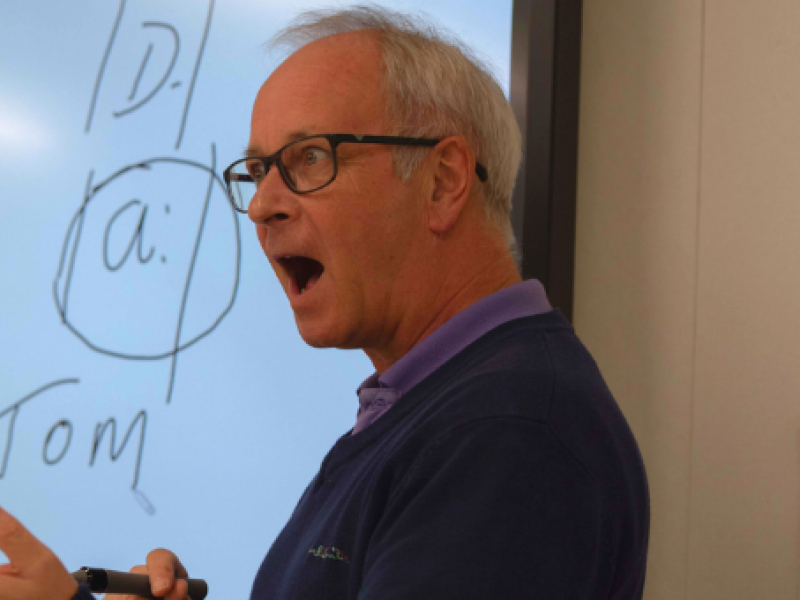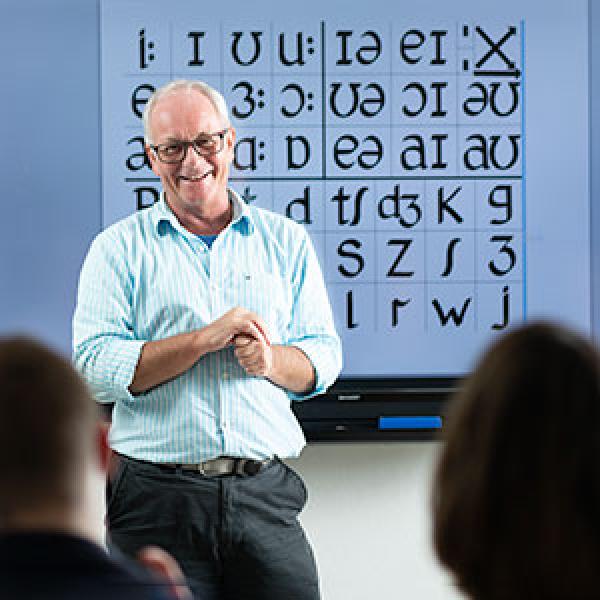23rd March 2020
What’s the point?
How is this going to help me with a class of kids who won’t talk or don’t want to learn?
Why should I do this?
How is this related to real teaching?
These are just a selection of questions people have raised about aspects of the Trinity Cert TESOL, either commenting on blogs or during information sessions. It’s not unreasonable as these questions are likely to come about through an absence of knowledge of and appreciation of the rationale and application of what is taught and practiced on the course.
In principle, asking questions is a good thing, even the pedantic ones. I’ve noticed though, that the less constructive or purposeful questions about the Internationally recognised CertTESOL and CELTA qualifications (potentially bordering on trolling or dissing) tend to be raised by those who don’t have intrinsic motivation for learning. This might be those who arrived in a country with their backpack, landed a job ‘teaching English’ and simply stayed, maybe a lifestyle choice or perhaps formed a relationship. On the other hand, external motivation might be for securing legal residency through a visa rather than getting tired of staying ‘under the radar’. Either way, it tends to lead to a cynicism and sometimes bitterness about the value of an accredited teaching qualification.
One aspect of the CertTESOL course that reflects this common knowledge gap is the Unit 4 Materials Assignment.
This assignment requires the evaluation of a piece of material used (e.g. a worksheet or game) from one of the Unit 1 Teaching Practice lessons. I can hear the comments already from certain quarters …
The assignment focuses on:
• Identifying a suitable piece of material from a lesson taught on the course
• Providing a rationale for the selection of the material
• Evaluating the material’s effectiveness in the lesson
• Outlining improvements that could be made to the material
The learning outcomes of the assignment are:
• The ability to plan, produce, use and evaluate simple classroom teaching materials
• The ability to produce a written rationale and evaluation of the effectiveness of the material
• The ability to reflect on and discuss the use of the selected materials
Oh no, but this isn’t going to help me in the real classroom they cry. Well, let’s see. Any responsible teacher and responsible establishment will see the sense and I’m not in any way trying to convert the hardened denier. But for those who want to achieve for themselves and their learners, you might see the point. If we break down the assignment into more fundamental blocks we might start to see the point.
• Can I identify whether or not a piece of material is going to help my learners with development of their language in terms of the lesson focus? I.e. does it address an aspect of vocabulary, grammar or pronunciation? Does it enable the learners to apply this to a language skill?
• Can I give a reason why the material is relevant to my learners?
If a piece of material doesn’t have a linguistic and skills focus are our learners benefitting from it? The answer must be no. If a piece of material has a point to it and our learners are gaining from it, are they (and other stakeholders) not getting value from any financial or personal investment?
If a piece of material addresses a gap the learners need filling, then it must be useful. The gap we might identify from our knowledge of the learners, observations and L1 contrasts.
Unless you are one of the robots that pitch up in class and just kill time with handouts, then you’re probably thinking about the above points, at least subconsciously, but what you really want to do is make a conscious effort. It’s not difficult. But OK, I can hear it now; I have to do what the school tells me or I don’t get paid enough … reasonable points but investing in some training might enable you to make some career choices and have more opportunities.
Even if we’re not thinking of our own materials, let’s suppose a colleague asks, ‘what do you think about this?’ Our ability to answer those 2 questions above would at worst be helping a colleague and more than likely facilitating some learning …
We also need to be able to evaluate how well a piece of material worked in class and identifying possible improvements.
For our own lessons we need to be able to say how well a piece of material worked; it might be our own material or something that has been adapted. Why might we want to do this? Our own professionalism and responsibility or we might have been asked to by our principal or head of department-yes, this does happen in reputable institutions! It might be something from a resource that your school is considering or you might be asked to observe a class and evaluate the effectiveness of the material -again, yes, it does happen. It’s all useful experience and if you’ve got the training to back it up so much the better.
To evaluate the material’s effectiveness, we need to:
• Measure the extent to which we consider the material was successful or unsuccessful; we might provide a numeric evaluation or perhaps adverbially; it’s important to evaluate the successful and unsuccessful elements
• Identify evidence to support the evaluation e.g. name the learners who engaged and provide an example of what they said, either accurately or identify errors
Once we have been able to evaluate the effectiveness of a piece of material (and no material is going to be completely effective), we need to be able to make suggestions for improvements. Identify a piece of material you have used recently and try to identify a couple of improvements; this might be in design or appearance e.g. adding some colour or including a couple of examples for scaffolding.
Hopefully you’ve got something out of this overview of the usefulness of evaluating material for the benefit of your learners and your professional development and which you might want to try out. If you haven’t, there might come a day when you do try it. In the meantime, it might be worthwhile asking, “how do I know what I don’t know?”
If you're not ready to invest in a 4 week CertTESOL Course, you can try our Online CertTESOL Starter course. This 20 hour course is a mandatory pre-course module of the Trinity CertTESOL at English for Asia.



